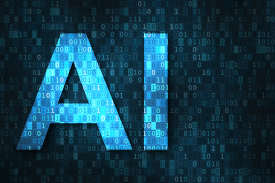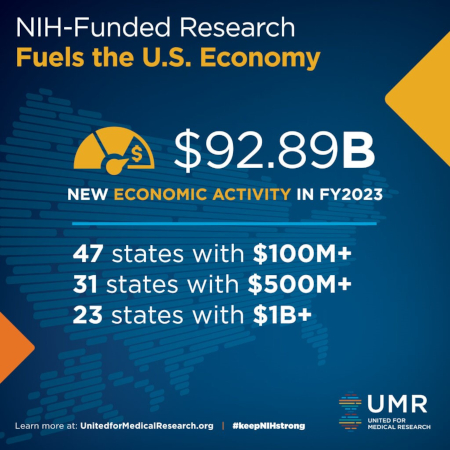 Student Aid Alliance Urges Lawmakers to Increase Funding for Student Financial Aid Programs
Student Aid Alliance Urges Lawmakers to Increase Funding for Student Financial Aid Programs
The Student Aid Alliance, a coalition of more than 40 higher education organizations, sent a letter to lawmakers on the House and Senate Appropriations Subcommittees on Labor, Health and Human Services, Education last week urging them to increase funding for student financial aid programs in FY25. AAU is on the alliance’s steering committee.
Specifically, the letter encouraged congressional appropriators to increase the annual maximum Pell Grant award to $13,000, and asked for increases to other federal student aid programs such as TRIO, Federal Work-Study, Supplemental Educational Opportunity Grants, and Graduate Assistance in Areas of National Need. “Without the strong partnership between the federal government, states, institutions, and families, millions of students would not be able to pursue their postsecondary education,” the letter said, adding: “We call on Congress to continue its bipartisan support of federal student aid programs – which combine grants, work-study, and loan programs – to enable low- and middle-income students to succeed.”
 Two AAU Universities Join U.S.-Japan Partnership to Advance Artificial Intelligence
Two AAU Universities Join U.S.-Japan Partnership to Advance Artificial Intelligence
Last week, the United States and Japan announced two groundbreaking research partnerships in artificial intelligence between the University of Washington and the University of Tsukuba and between Carnegie Mellon University and Keio University. The partnerships, which seek to further innovation, entrepreneurship, and workforce training in AI, were announced as part of Japanese Prime Minister Kishida Fumio’s state visit to the United States. The partnerships are being supported by an investment of $110 million from a consortium of U.S. and Japanese companies, including NVIDIA, Amazon, and Microsoft.
The University of Washington and the University of Tsukuba partnership will “feature work in areas where AI can drive transformative change to benefit society, including healthcare, robotics, climate change and atmospheric science, among others,” according to Washington’s announcement. The partnership between Carnegie Mellon University and Keio University will “center on specific research themes, including multimodal and multi-lingual learning, AI for robots, autonomous AI symbiosis with humans, life sciences, and AI for scientific discovery,” according to Carnegie Mellon’s announcement.
Both partnerships will provide opportunities for interdisciplinary collaborations between academic departments, faculty, and students at the universities as well as funding to implement joint research projects and workshops. The partnerships “build on President Biden and Prime Minister Kishida’s commitment to advance U.S.-Japan science and technology cooperation to develop a talented global workforce and strengthen economic security in both countries,” said U.S. Secretary of Commerce Gina Raimondo. The two nations also have joint academic-corporate partnerships in the areas of quantum computing and semiconductors.
 New Report Shows University Innovation Fuels Prosperity and Local Economic Growth
New Report Shows University Innovation Fuels Prosperity and Local Economic Growth
A new report by the George W. Bush Presidential Center confirms the important role colleges, universities, and academic medical centers play in creating prosperity and opportunity in American cities. For example, these institutions (which the report labels “Eds and Meds”) have led to strong economic growth in cities like Pittsburgh; Austin; Nashville; Durham, NC; Madison, WI; and College Station, TX – all home to AAU members. The report argued that these institutions “will become even more essential to local economies as the world grows ever more dependent on complex knowledge and technology.”
The report noted that Eds and Meds “are among the preeminent anchor institutions in many cities” – they are a significant source of local employment and make enormous contributions to the cities’ vitality. It recommended that, in order to bolster these institutions’ economic impact, policymakers and leaders should work to “restore federal investment in research and development, redirect funding streams to promote research and innovative education-to-career pathways, and step up investment in local and regional innovation ecosystems.” It also recommended changes in immigration policy to make it easier for institutions to attract international talent.
Friends of IES Urge at Least $900 Million for Institute of Education Sciences in FY25
Friends of IES, a coalition of more than 40 higher education organizations and universities including AAU, sent a letter last week encouraging House and Senate appropriators to provide at least $900 million for the Institute of Education Sciences in FY25. “This amount would enable IES to build on ongoing research and development activities to improve educational outcomes, bolster education research and data infrastructure, and develop actionable resources drawing upon IES-funded research,” the letter noted.
The Institute of Education Sciences provides scientific evidence to the Department of Education to help shape education policy. Its research and evaluations support student learning as well as student and teacher success nationwide.
News of Interest
CBS News: Richard Lyons Appointed by Regents as New Chancellor of UC Berkeley – The University of California board of regents appointed Richard Lyons as the new chancellor of the University of California, Berkeley last week. Lyons is a Berkeley alumnus and a former dean of the university’s Haas School of Business. He succeeds Chancellor Carol Christ, who is stepping down at the end of June.
Science: NSF Tests Ways to Improve Research Security Without Disrupting Peer Review – A panel of experts is recommending that, in order to secure research with national security implications, the National Science Foundation “should assess projects individually” instead of “designating entire research areas as sensitive.” This approach would help secure research without impeding it, said AAU Senior Vice President for Government Relations and Public Policy Toby Smith. Closing off entire areas of research, he said, would make it harder for research results to “be reviewed, replicated, tested, and challenged by other scientists.”
CBS News: Biden’s New Student Loan Forgiveness Plan Could Help 30 Million Borrowers. Here’s Who Would Qualify. – The Biden administration has announced new proposals to provide debt relief to student loan borrowers. The proposals include relief for borrowers who have been in repayment for 20 years or more; borrowers whose balances have gone up despite making regular payments due to interest; borrowers who are experiencing financial hardship; and borrowers who are already eligible for relief through an existing program but who have not yet applied for assistance. The Department of Education said it will formalize the proposals in a rule, which will be open to public comment.
KTVX: New U of U Program Helps Students Pay for College Through Community Service – The University of Utah is launching a new initiative this fall that will provide students with the opportunity to earn scholarships by performing 120 hours of community service. “What’s exciting about this is it allows us to attract students that care about our community, that want to serve, that want to get engaged in building what we have here in Utah, and we just want to make sure we support that and hopefully partner with our other sister institutions to roll this out statewide to all,” said University of Utah President Taylor Randall.
NBC News: Latino Students Make Up Most of the Nation’s Growth in College Degrees – A new report by Excelencia in Education shows that “Hispanic students accounted for the vast majority, 79%, of the 4% overall increase in degree attainment over the last five years.” The report found, however, that Latinos still lag behind other groups in earning college degrees: “only 27% of Hispanics earned an associate degree or higher in the 2021-22 academic year, compared to 44% of other Americans.”
Featured Research

SBU Study Reveals How the American Public Feels About AI
A study by Stony Brook University researchers found that, between 2021 and 2023, U.S. adults became more confident about the “achievability of constructing a computer system able to perform any intellectual task a human is capable of.” At the same time, Americans also became “more adamantly” opposed to “affording such systems the same rights as human beings.”

Does Pregnancy Accelerate Aging? Yale Findings Suggest It Does – at First
Researchers at the Yale School of Medicine found that, while pregnancy accelerates biological or epigenetic age by approximately two years, there is “a remarkably large decrease in biological age, by as much as eight years for some individuals” three months postpartum. The researchers say that their findings “provide an interesting new direction for aging research.”
Stat of the Week

Research funding by the National Institutes of Health fueled $92.89 billion in new economic activity in FY23, according to a report by United for Medical Research on the “NIH’s Role in Sustaining the U.S. Economy.” UMR explained: “As NIH funding is awarded to researchers in individual states, that funding supports employment and the purchase of research-related goods, services, and materials. The income generated from these jobs and purchases cycles through the economy to produce new economic activity.”